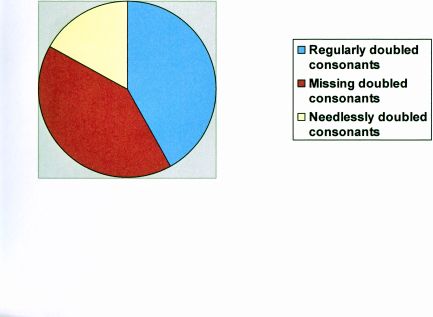Consonant doubling is the biggest English spelling problem
It causes more spelling errors than any other spelling difficulty.
In root words of more than one syllable it is totally unpredictable.
Doubling a consonant is supposed to show that a vowel is short rather than long, as in
bitter – biter, teddy – tedious, tinny – tiny
It was intended to apply just to stressed vowels. This is meant to explain why ‘conferred’ and ‘committed’ have rr and ttin the past tense, but ‘entered’ and ‘plummeted’ don’t (when –ed is added to ‘confer, commit, enter’ and ‘plummet’).
Unfortunately, English consonant doubling is used very inconsistently. There is no reliable rule for deciding whether to double a consonant, or not, in similarly sounding words. Learners have to memorise, word by word, when to double and when not to, as the chart below summarises.

This rote-learning burden of 913 words defeats many learners.
Another 73 words exacerbate it even further.
49 words have unpredictable final -ff, -ll and –ss (if – stiff, stole – poll, bus – fuss)
and
24 words don’t follow the –ccle pattern, of endings like apple, bubble, tussle,
for example, chapel, double, rustle.